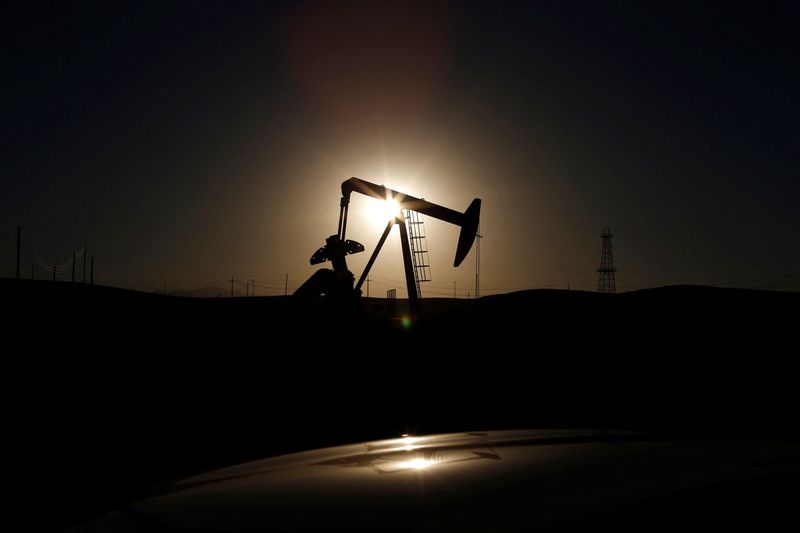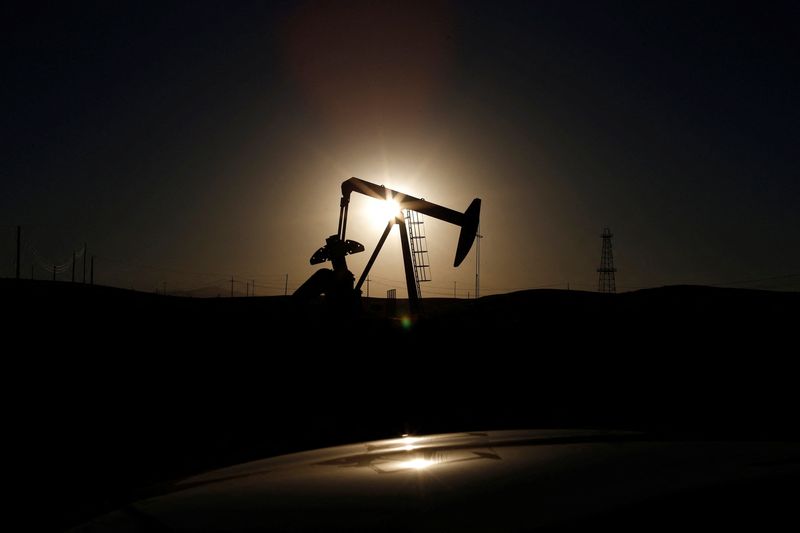
By Katya Golubkova
TOKYO (Reuters) -Oil prices rose on Wednesday on fears conflict in the Middle East could turn into a wider war and disrupt oil supply from the key producing region after Iran fired ballistic missiles at Israel.
Brent futures rose 83 cents, or 1.13%, to $74.39 a barrel, while U.S. West Texas Intermediate (WTI) crude rose 88 cents, or 1.26%, to $70.71 at 0029 GMT, coming slightly down from spiking by more than $1 earlier in the session.
During trading on Tuesday, both crude benchmarks jumped more than 5%.
Iran fired more than 180 ballistic missiles at Israel on Tuesday, Israel said, in retaliation for Israel’s campaign against Tehran’s Hezbollah allies in Lebanon.
Iran, a member of the Organization of the Petroleum Exporting Countries (OPEC), is a major oil producer in the region.
“The direct involvement of Iran, an OPEC member, raises the prospect of disruptions to oil supplies,” ANZ Research said in a note, referring to the conflict.
Iran’s oil output rose to a six-year high of 3.7 million barrels per day in August, ANZ added.
Israeli Prime Minister Benjamin Netanyahu promised Iran would pay for its missile attack against Israel, while Tehran said any retaliation would be met with “vast destruction”, raising fears of a wider war.
U.S. President Joe Biden expressed full U.S. support for Israel, its longtime ally, and the U.N. Security Council scheduled a meeting on the Middle East for Wednesday.
“A major escalation by Iran risks bringing the U.S. into the war,” Capital Economics said in a note. “Iran accounts for about 4% of global oil output, but an important consideration will be whether Saudi Arabia increases production if Iranian supplies were disrupted.”
A panel of ministers from the Organization of the Petroleum Exporting Countries and allies, together called OPEC+, meets later on Wednesday to review the market, with no policy changes expected. From December, OPEC+, which includes Russia, is set to raise output by 180,000 barrels per day (bpd) monthly.

“Any suggestion that production hikes will proceed could offset concerns of supply disruptions in the Middle East,” ANZ’s note said.
U.S. stockpile data was mixed: crude oil and distillate inventories fell last week while gasoline inventories rose, market sources said, citing American Petroleum Institute figures on Tuesday.
This post is originally published on INVESTING.


